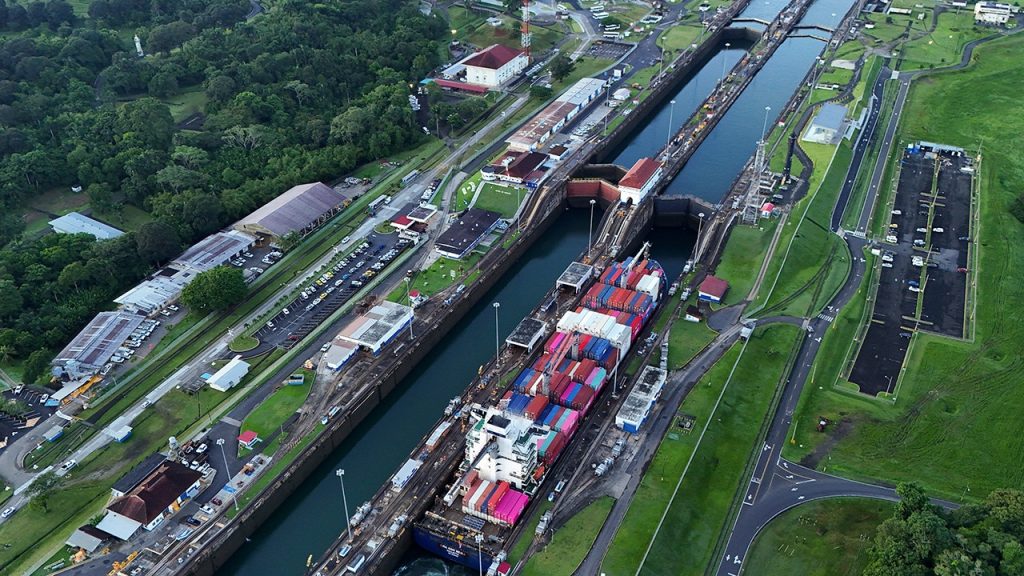The Panama Canal, a vital waterway connecting the Atlantic and Pacific Oceans, has become the center of a renewed debate following remarks by former US President Donald Trump. Trump’s assertion that the United States “foolishly gave away” the canal and is now “being ripped off” sparked a strong response from Panama’s then-President, José Raúl Mulino. Mulino unequivocally declared Panama’s sovereignty over the canal, emphasizing that every inch of the waterway belongs to Panama and will continue to do so. This exchange highlights the historical complexities and contemporary sensitivities surrounding the canal’s ownership and operation, a subject deeply intertwined with national pride and economic interests for both countries.
Mulino directly addressed Trump’s complaints about rising transit fees, explaining that these tariffs are determined by experts based on operational costs, supply and demand dynamics, and are not arbitrary decisions. He further highlighted Panama’s investments in expanding the canal’s capacity to accommodate increased ship traffic, emphasizing that these improvements are self-funded and justified by the fee adjustments. Mulino’s firm stance underscores Panama’s commitment to maintaining control over the canal and its operations, rejecting any suggestion of relinquishing its sovereignty. His message resonated with the Panamanian people, uniting them under a shared sense of national pride and ownership of the canal.
The historical context of the Panama Canal adds further layers to this contemporary dispute. The United States originally built the canal in the early 20th century, driven by its strategic interests in facilitating commercial and military vessel transit between its coasts. However, the construction and subsequent control of the canal were marked by political tensions and disputes with Panama. The 1977 treaty signed by President Jimmy Carter paved the way for the transfer of control to Panama, a move finalized on December 31, 1999. This transfer marked a significant turning point in US-Panama relations, symbolizing Panama’s full sovereignty and control over its territory and resources.
Trump’s revival of this historical issue taps into a complex and sensitive nerve within both nations. His suggestion of reclaiming the canal disregards the decades-long process that led to its rightful return to Panama. Furthermore, it ignores the significant investments and improvements Panama has made to modernize and expand the canal’s capacity, ensuring its continued efficiency and relevance in global trade. Trump’s rhetoric, characterized by his “America First” policy, appears to minimize the significance of the canal’s transfer for Panama and its people, focusing solely on perceived US economic disadvantages.
The Panama Canal’s operation has also faced recent challenges due to environmental factors. The severe drought that affected Central America in 2023 significantly impacted the canal’s water levels, forcing administrators to reduce the number of daily transits and subsequently increase transit fees. These measures were necessary to maintain the canal’s operational viability during the drought and demonstrate the delicate balance between environmental conditions and economic activities. While transit levels have normalized with the return of regular rainfall, the episode highlights the canal’s vulnerability to climate change and the need for adaptive management strategies.
The debate ignited by Trump’s remarks underscores the enduring importance of the Panama Canal as a strategic waterway and a symbol of national sovereignty for Panama. The canal’s ownership and operation are not merely economic matters; they are deeply intertwined with national identity and historical legacies. While discussions about transit fees and operational efficiency are legitimate, any suggestion of reversing the canal’s transfer to Panama disregards the historical context, legal agreements, and the significance of the canal for Panama’s sovereignty and economic development. The Panamanian government’s firm response reaffirms its commitment to maintaining control and ensuring the canal’s continued operation as a vital artery of global commerce, managed independently under its sovereign authority.

